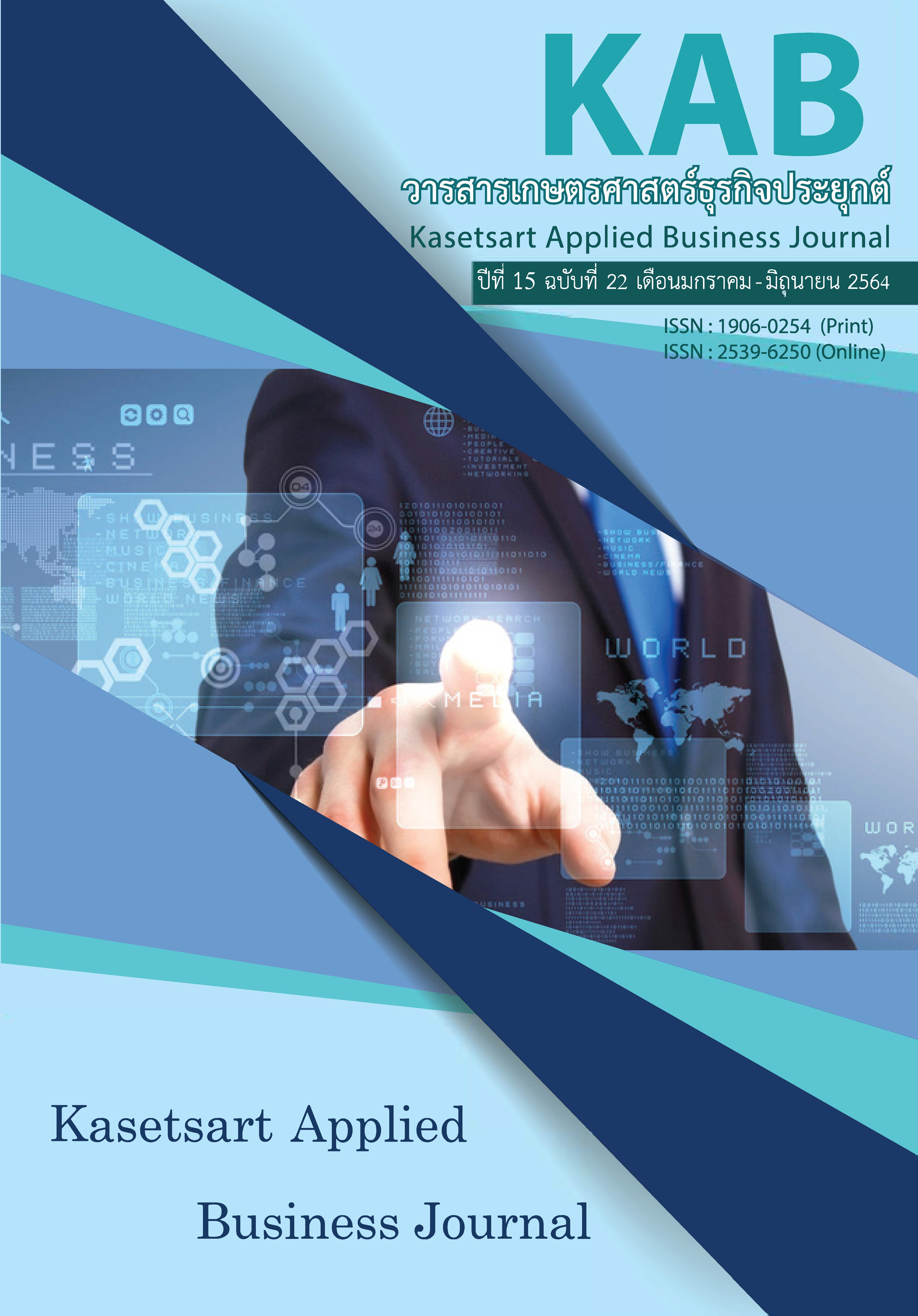การใช้ Control Theory เพื่ออธิบายว่าเหตุใดผู้บริโภคมีอัตราการใช้อินเตอร์เนต แตกต่างกัน: การศึกษาเชิงประจักษ์ กลุ่มผู้บริโภคในกรุงเทพมหานคร
Main Article Content
บทคัดย่อ
ABSTRACT
Manuscript type: Research paper
Research Aims: This paper investigates the effect of different strategies consumers employ when they use the Internet to accomplish goals in life. Many individuals who believe that technologies can help them solve problems and accomplish goals in their daily lives invest time and effort into using the Internet.It explores differences in the context of control theory, which explains behaviour on the basis of strategies consumers use to control outcomes in their lives.
Design/methodology/approach: The survey utilises self-administered questionnaires via convenience sampling among Thai consumers in Bangkok, Thailand. We use partial correlations to test the relationships between the four types of control strategies and frequency of Internet use. The study uses three control variables: Education, previous technological experience, and social desirability. Moreover, we test the significance of the correlations between the two age groups using Fisher’s Z transformations.
Research Findings: The study findings show that Internet users who employ a selective primary control (goal engagement) strategy tend to make heavier use of the Internet, compared to their counterparts who do not employ such a strategy. Moreover, Internet users who use compensatory secondary control (goal disengagement) strategy tend to make lighter use of the Internet, compared to their counterparts who do not employ such a strategy.
Theoretical Contribution/Originality: This paper examines across other areas of consumer behaviour where heavy Internet users have been found to differ from their light Internet user counterparts, such as adopting new products and ideas, especially new products and services offered through the Internet.
Practitioner/Policy Implication: Our findings suggest the need for marketers to understand consumers’ perceptions in order to change their Internet usage habits by employing strategies that promote goal engagement, and deter goal disengagement of these consumers.
Research limitation/Implications: More rigorous testing of these and other theory-derived hypotheses should be performed, such as path analysis using SMART PLS or AMOS, in future studies of control theory testing.
Article Details
Journal of TCI is licensed under a Creative Commons Attribution-NonCommercial-NoDerivatives 4.0 International (CC BY-NC-ND 4.0) licence, unless otherwise stated. Please read our Policies page for more information...


